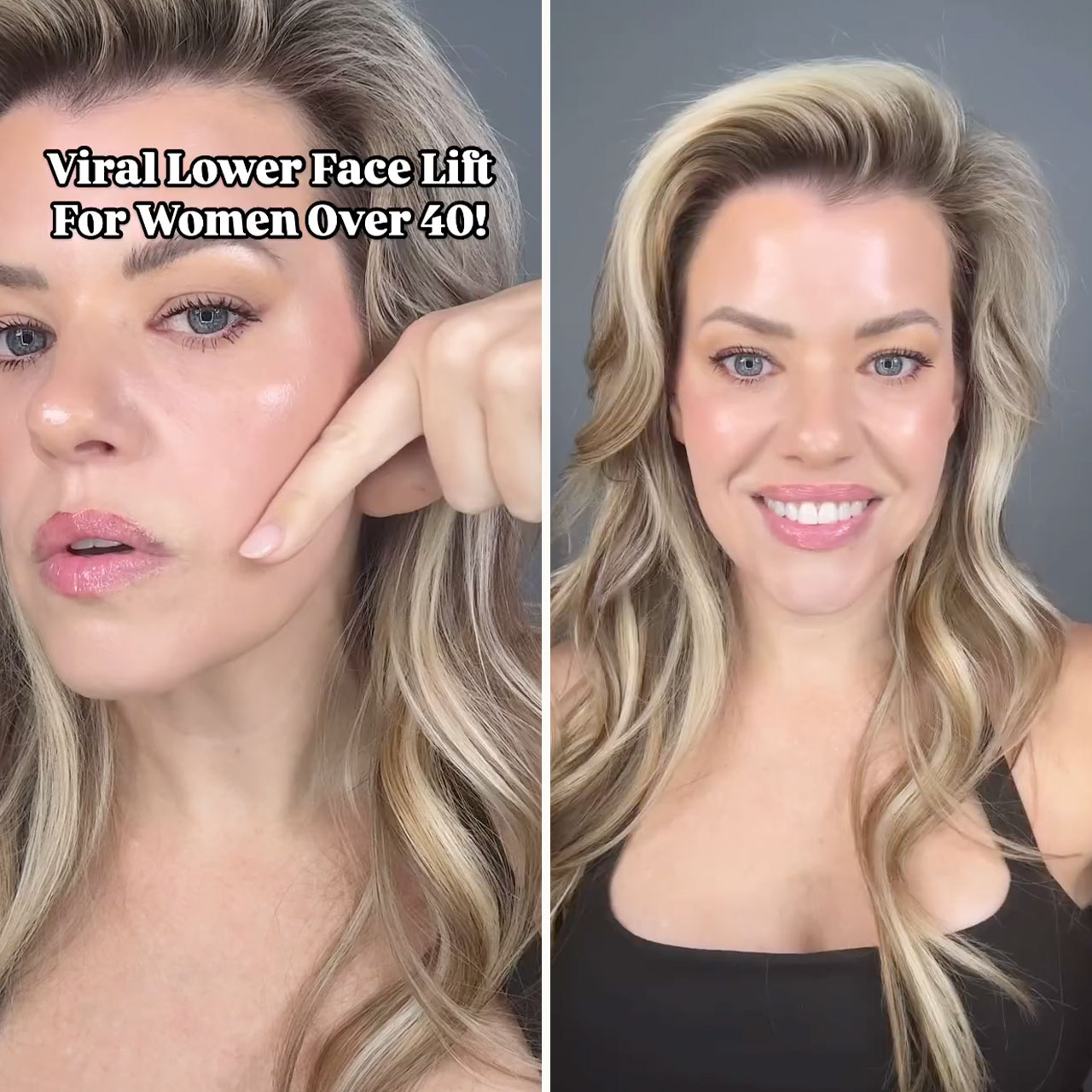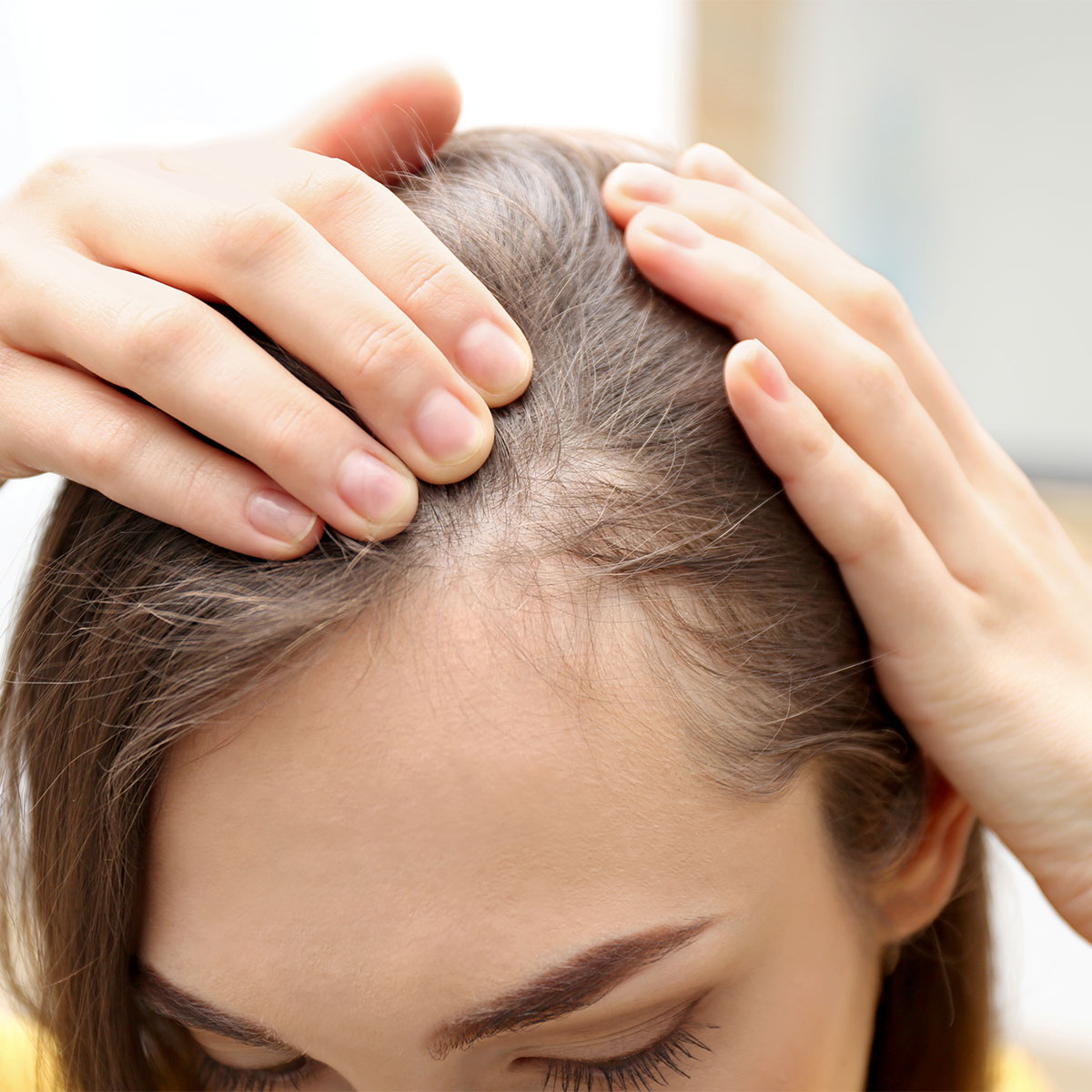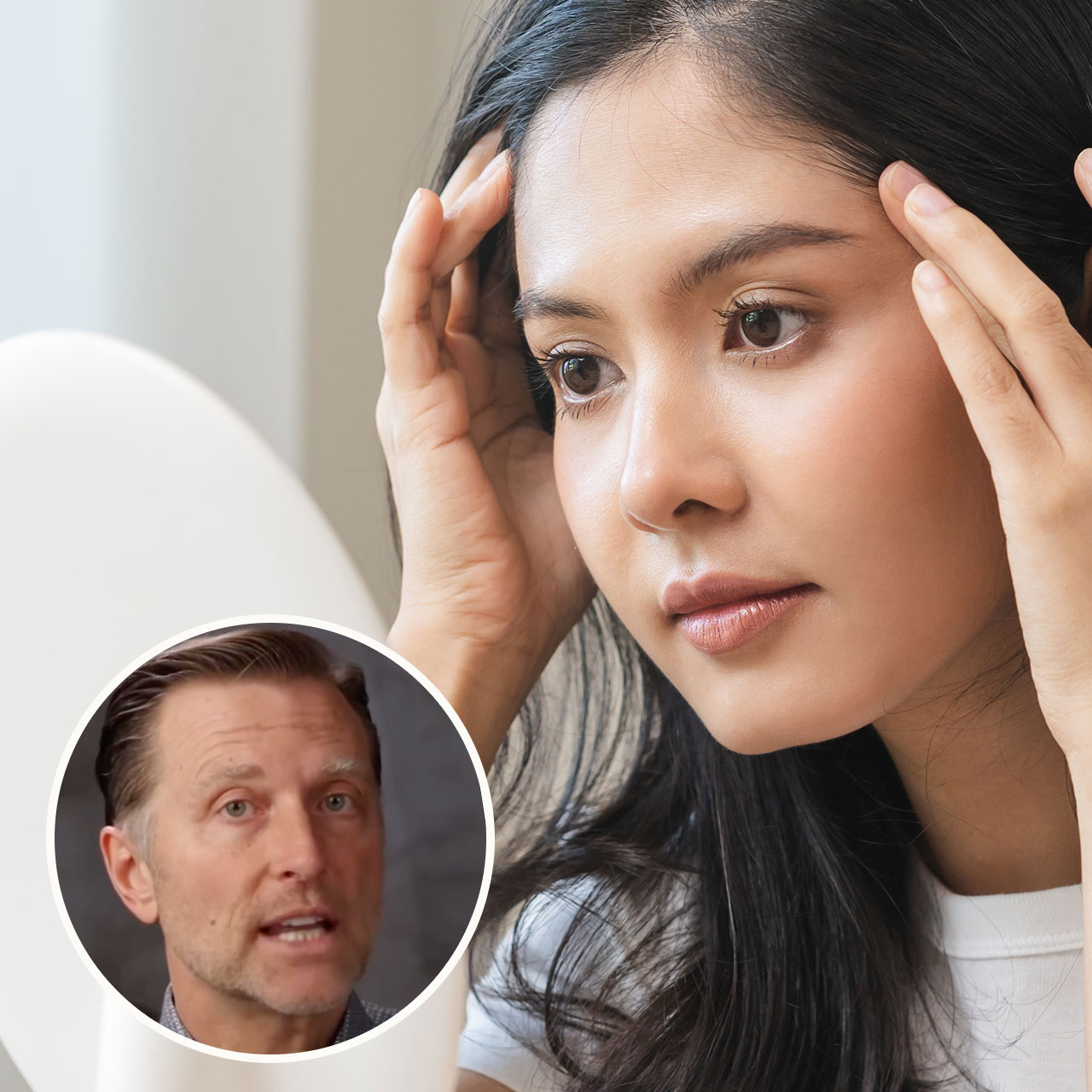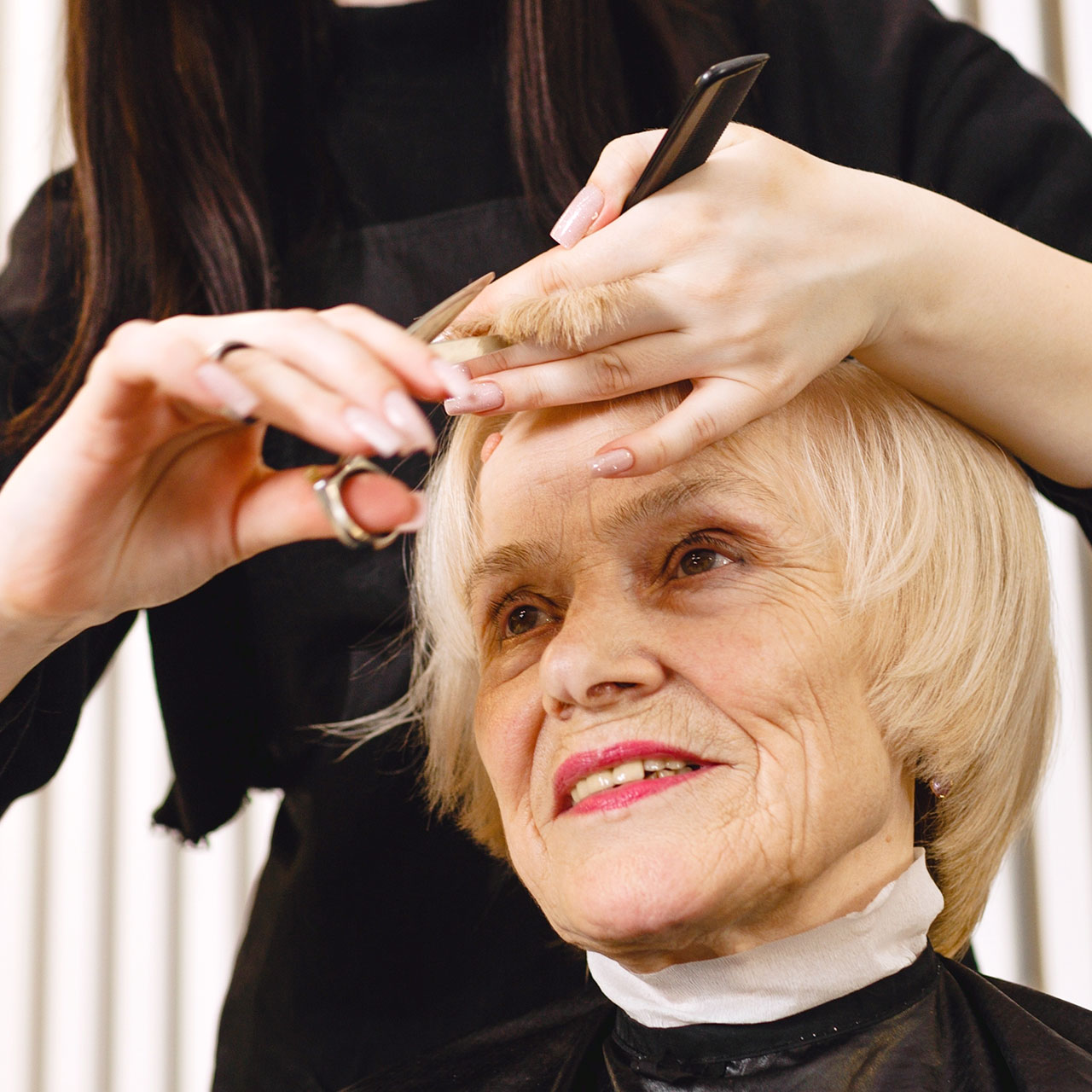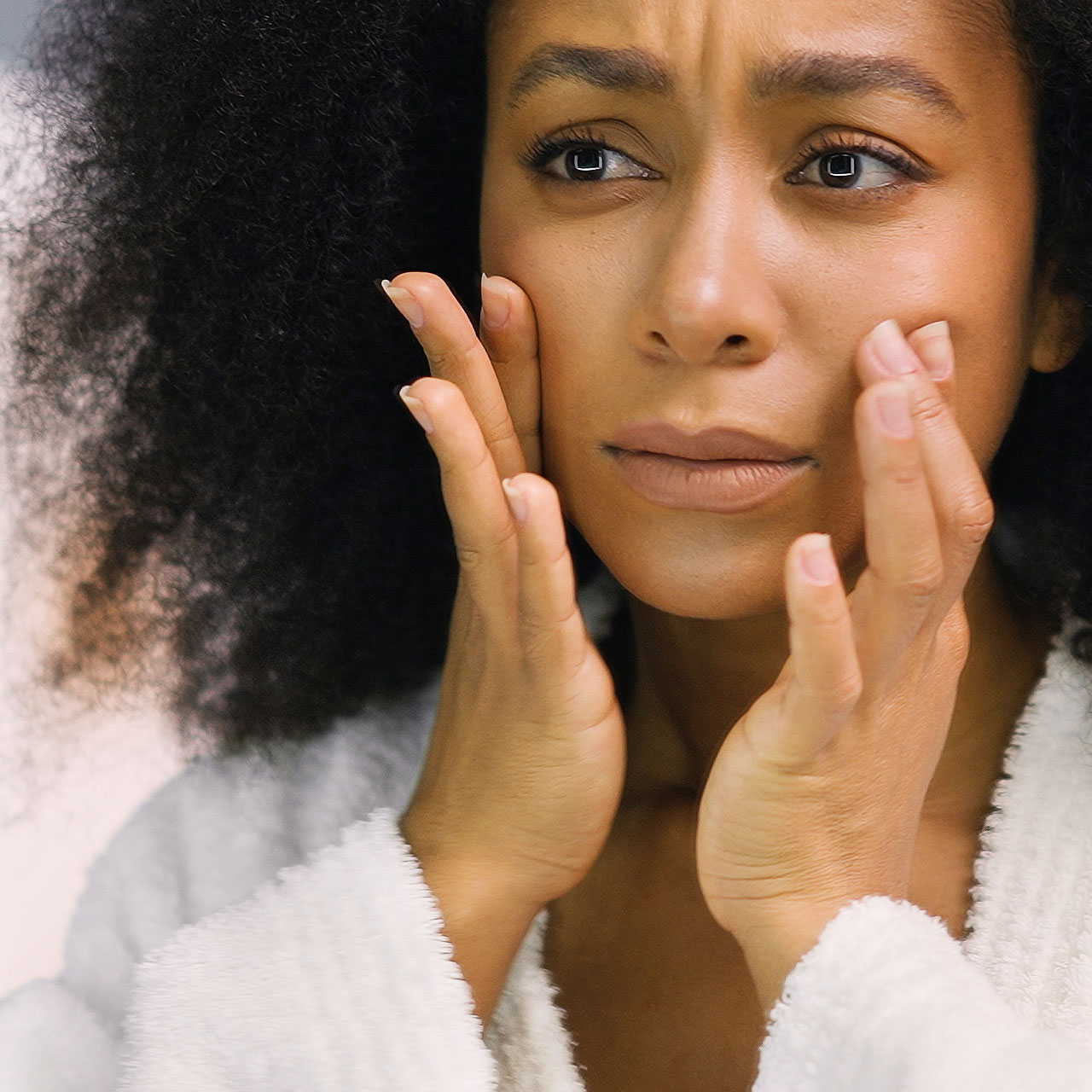You may not know why it’s happening, but there’s no way to deny it’s happening: we’re talking about hair loss. Watching strands of hair collect on your brush can be extremely stressful. Adding to this stress is the inability to pinpoint exactly why your hair has suddenly started falling out. Maybe you rush to the drugstore to pick up supplements, shampoos, serums, and anything else labeled for “hair loss” or “thinning hair.” The problem with this way of handling things is that, unless you know the root cause of hair loss, it’s very difficult to address it. Not to mention: the market of hair loss products is positively saturated. “Please take my money” may be your attitude at first — anything to make things better. But getting a handle on the root cause (no pun intended) will save you money, frustration, and help you find the best solution for you faster.
Dr. Dray, a licensed dermatologist, offers numerous valuable tips on why your hair may be shedding and what to do about it.
Here are some of the top reasons that should be on your radar.

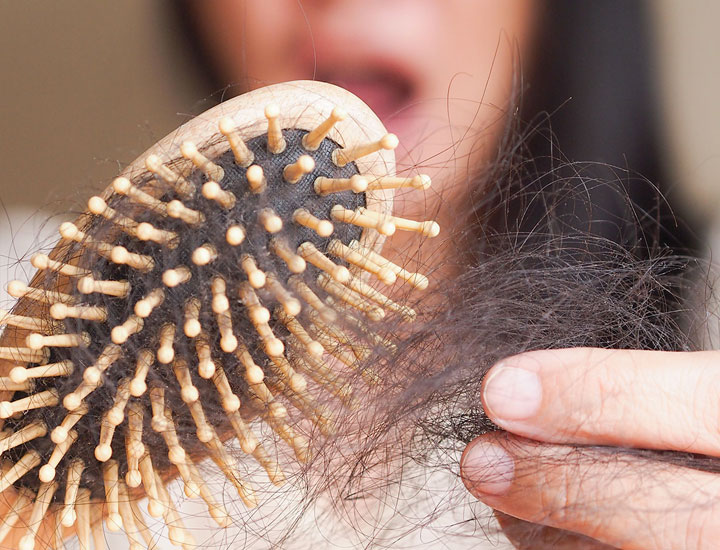
Genetics
It may be shocking because we think of male pattern baldness as genetic, but less so for women. The presentation of hair loss in women is focused more on the top of the head, according to Dr. Dray. It can present as a widening of the part. This hormonal issue sometimes occurs around menopause but even earlier in life for many women. Treatments can include Rogaine and oral medications, so visit a dermatologist to learn about your options.
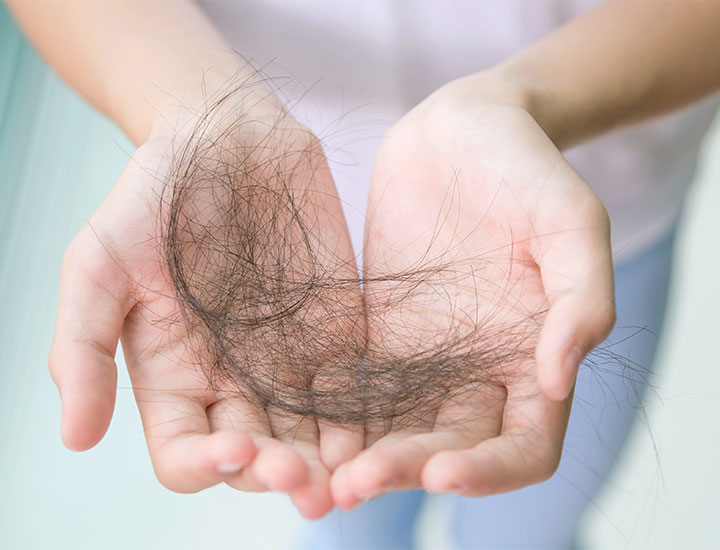
Childbirth
Hello again, hormones. When you are pregnant, the hair cycle benefits from an increase in estrogen and shifts more hair toward a growing stage, more so than usual. So after you give birth, you lose a lot of the hair that has grown as your hormones go back to baseline. The problem is that this shedding can seem so dramatic because it can come all at once and last for a while. The good news? It WILL normalize as long as there are no other hormonal issues happening.
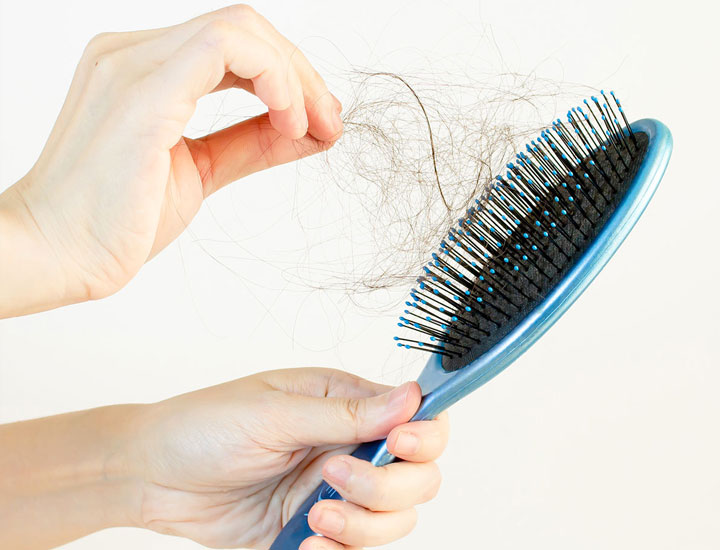
Birth Control
Starting, stopping, or changing birth control pills can affect your body’s estrogen levels, which can play a role in hair loss. This typically starts about three months after you make a change in your birth control. Keep in mind: your hair loss may be intensified if you are starting a birth control pill not long after giving birth.

Medications
There are a number of medications that can cause hair loss, including some blood pressure and anxiety medications. Systemic steroids can also impact the hair cycle and interfere with the progression of hairs from the resting stage to the growing stage. Antidepressants and oral retinoids like Accutane can even cause some hair loss. This type of hair loss isn’t causing permanent balding and the hair should eventually grow back. Dr. Dray also reminds us that chemotherapy can cause hair loss and the stress of going through this experience can cause hair loss, as well.
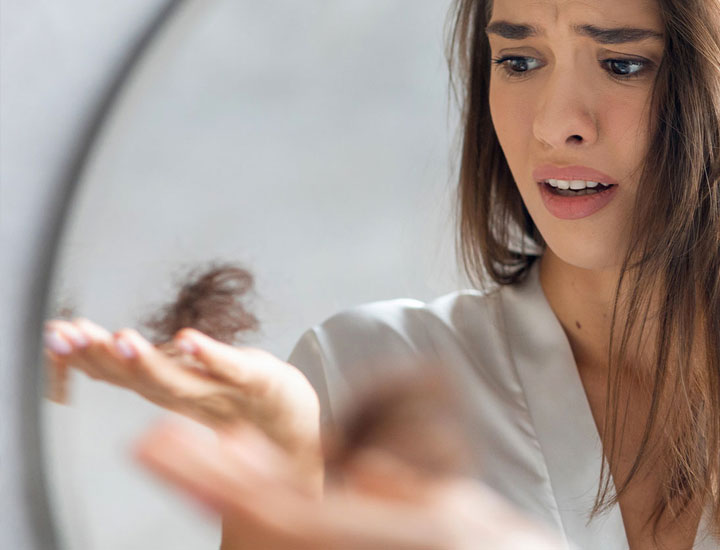
Nutritional Deficiencies
Nutritional deficiencies like iron deficiency anemia aren’t as common as the other culprits on this list, but they’re not unheard of either. Zinc and Vitamin D deficiencies are also linked to hair loss (and the latter IS common these days, though Dr. Dray says there is NO proof that this is because we wear more sunscreen).
Before you try to self-diagnose, see your health care provider. Discuss with them if you’ve experienced physical or emotional stress, are taking new medications and birth control, or have female pattern baldness in your family history. They can then help provide you with solutions that work for you.




